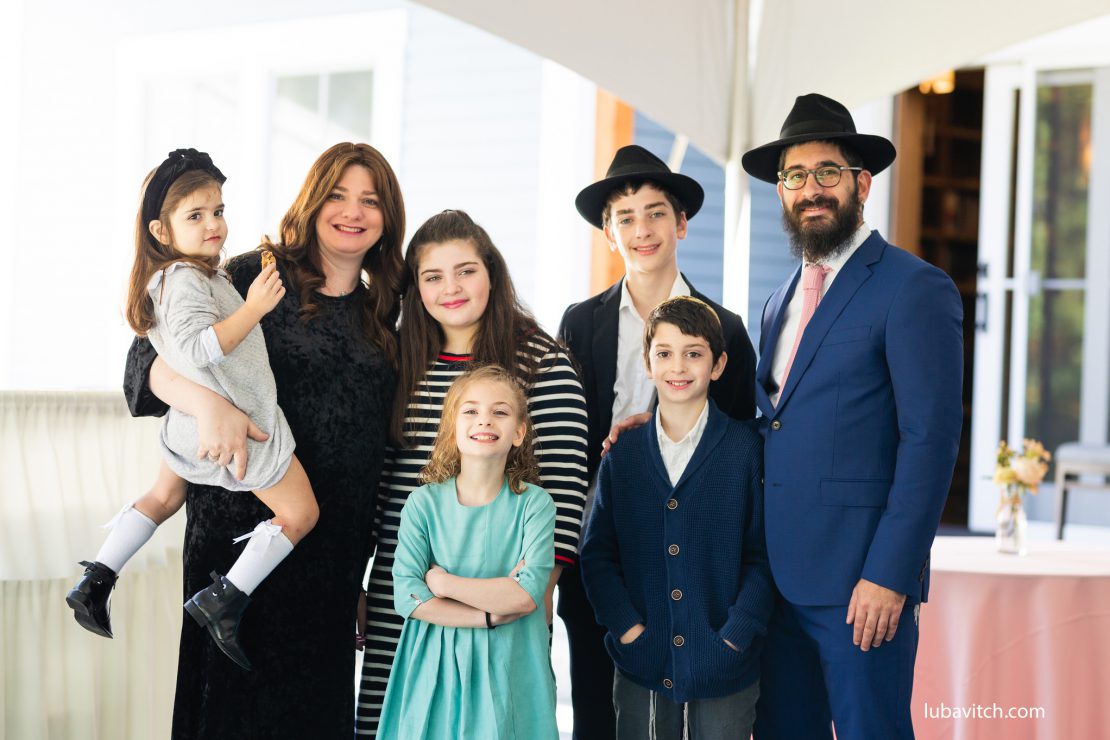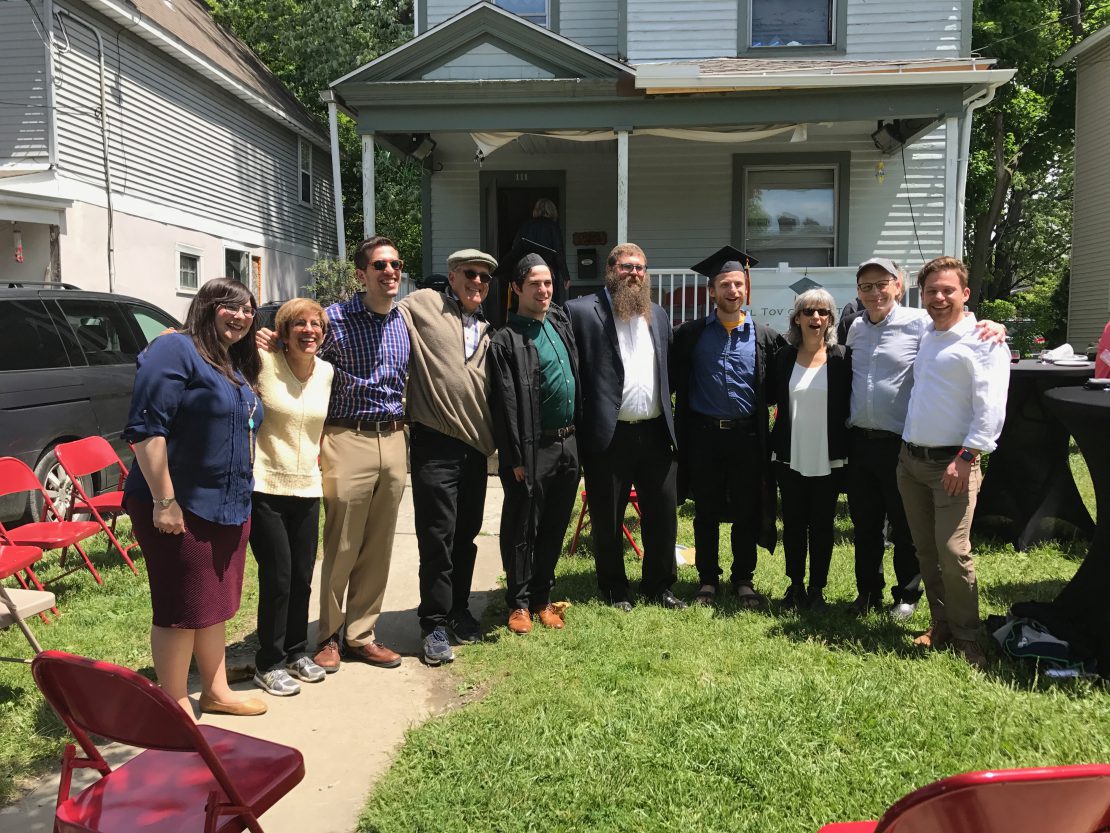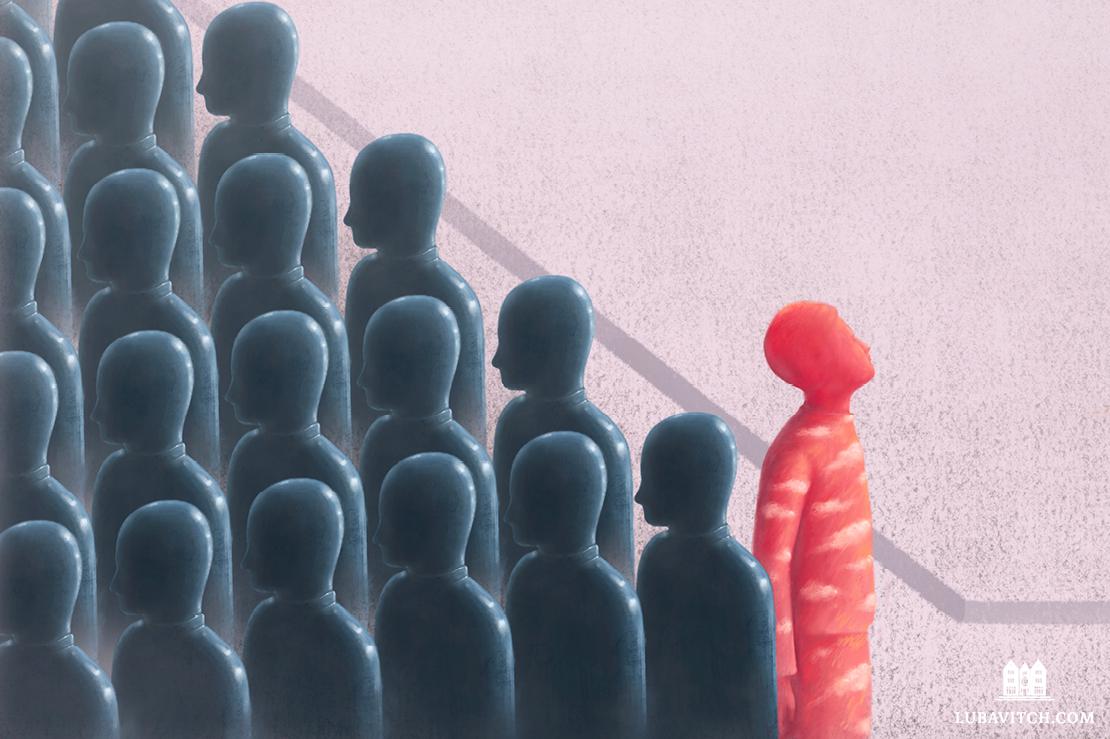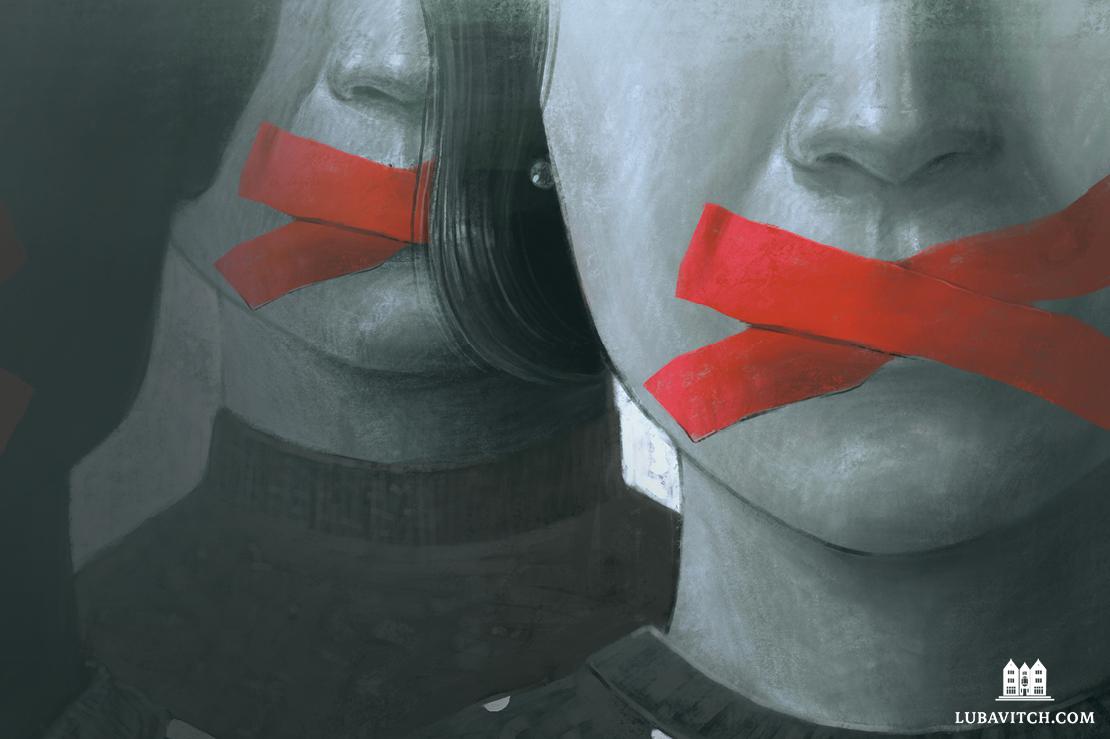Jew. White supremacist. Zionist.
The words were laced with profanity and hurled at her one after another. It was an escalating torrent of abuse that left Natalie Shclover stunned, unable to respond either to their meaning or the rage in the women’s voices.
Standing on the third floor of the University of Connecticut’s Homer Babbidge Library, Shclover felt “unsafe” and “horrified.” But the in-person confrontation was nothing compared to what came next.
A video of the encounter—which took place when Shclover and her boyfriend removed illegally posted anti-Israel fliers from a bulletin board—hit Instagram and TikTok a few minutes later. The caption asserted that Shclover had been harassing the four Muslim women who confronted her, though the clip showed only the women insulting her.
YikYak, the anonymous social network popular on campus, exploded with comments calling Shclover, a senior in the business school, an Islamophobe and a “dirty [expletive] Jew.” One user posted her home address to the platform; another contacted her future employer. That evening, the Chordials, an a cappella group Shclover had joined in her freshman year and served as president, summarily expelled her. The group released a statement saying it would not tolerate “behaviors that cause pain, distress or damage to others; especially those of a different race, ethnicity, nationality or religion.”
“It was just so quick,” Shclover says of the incident, which took place in February. “There was this shift from political disagreement to a moral judgment about who I was.” Months later, only two individuals have approached her to express regret for the incident, and Shclover herself continues to struggle with negative feelings: “It’s very hard to come back from something like that.”
“A Mob Mentality”
Cancel culture is a freighted term used to describe a broad range of behaviors on both ends of the political spectrum. But for Jewish students on North American campuses, the phrase has taken on a very specific meaning in the last few years, says Andrew Pessin, professor of philosophy at Connecticut College and campus bureau chief at the Algemeiner Journal: “The BDS [Boycott, Divestment, Sanctions] movement was really the first wave of academic cancellation. It’s attempting to cancel Israel, to cancel a set of ideas on campus. In recent years, the movement has turned from attacking Israel to attacking supporters of Israel—their hashtag is #Zionistsoffcampus — and then Jews in general.”
The switch in focus from ideas to people is not unique to the debate around Israel—though in that case it is supercharged by the addition of antisemitism. Across the board, political debate on campus is increasingly framed as a moral conflict between victims and their oppressors, good and evil. “There’s a herd mentality, a mob mentality,” says Rabbi Moshe Gray, a Chabad representative at Dartmouth College. “People are scared to question the orthodoxies of whatever group they’re a part of.”

In an environment where opinion and identity are often conflated, Shabbat-dinner conversations are more fraught—and more necessary—than ever, Gray says. “The Rebbe taught us to see people as neshamas. If I see you as a soul, then when I disagree with you, I’m not denying your personhood.”
A sense of spiritual identity is just the beginning. Confronting the ideas and assumptions that underpin cancel culture has spurred Jewish students and Chabad reps to mine their own argumentative moral tradition for guidance, inspiration, and a path back toward dialogue.
The Right Place to Talk
Dramatic cancellations like Natalie Shclover’s don’t happen every day, but some students feel their effect in all spheres of campus life—a pervasive, low-level anxiety. “You have to watch what you say and whom you say it around,” says Max Weintraub, a senior majoring in government at Dartmouth. He recalls starting a conversation about racism in the dining hall, only to have his friends tell him it wasn’t the “right place” to talk.
Weintraub, who considers himself politically conservative, says the atmosphere is even more constrained in the classroom, where students feel pressure to agree with professors to earn a good grade. Often, he says, his is the lone dissenting voice in the room.
Inner turmoil lies at the heart of constructive dialogue. “I have to listen to what the other person is saying, process it, and come out on the other end with a deeper understanding of what my own opinion is,” Elkan says.
During his freshman year, Weintraub was delighted to discover a place at Dartmouth where debate was welcomed. “My friend dragged me to Chabad, and I got to know the rabbi. I love speaking with him. There’s no topic that’s off limits. It’s like being with family.”
It’s an atmosphere Gray has worked hard to cultivate. “Hillel and Shamai were very focused. They didn’t get sidetracked with ad hominem attacks,” he says, referring to the famous disagreement between the two first-century Talmudic sages. Gray often challenges students on their opinions, at the same time reminding them that the conversation is about ideas, not people. “We’re very good at sticking to our points.”
Shabbat-table conversations have their own lingering effect, empowering students with a sense of confidence and belonging. Sarah, a sophomore who asked that her real name not be used, says she doesn’t buy into cancel culture: “I didn’t come to Dartmouth to tell people what they want to hear.” She hasn’t experienced much bias in the classroom—in part because she chooses professors carefully—and when she does, she’s not afraid to point it out. But having attended a Conservative synagogue and Hebrew School growing up in New York City, Sarah admits that when she arrived at Dartmouth, she felt “a yearning for a place on campus where I felt super safe, where I felt like I belonged.”
She discovered Chabad during the High Holidays of her freshman year and quickly joined the board. Her involvement there has been “pivotal” in her college experience, she says. “My Judaism grounds me in the values that I know I stand for, and that manifests in how I act in non-Jewish spaces.”
Truth with a Capital ‘T’
Creating an environment that’s conducive to debate is the first step in a larger learning process, says Devorah Elkan, a Chabad representative at Oberlin College. “The core of the issue is that there’s a lack of knowledge about how to have real dialogue.”
Judaism shares many of the social justice values at the heart of the progressive agenda. Yet Jewish tradition embraces debate as a creative force, because it has an objective moral framework, Pessin notes. “Judaism believes in Truth with a capital ‘T.’ G-d has a position, and whoever has a position is trying to get it to align with G-d’s.” The rabbis of the Talmud can get heated at times, yet they maintain a baseline respect and humility. “If what reigns over us is Truth, then I’m never sure that I have it. You might have it.” And when disagreement proves insoluble, the debate itself is deemed sacred, as expressed in the famous Talmudic maxim “These and those are the words of the living G-d.”

Torah study provides both an object lesson in constructive debate and a way to diffuse explosive conversations, says Rabbi Shlomo Elkan. He recalls a Torah class for students around the time of the leaked Supreme Court decision overturning Roe v. Wade: Elkan described the dispute between Rabbis Moshe Feinstein and Eliezer Waldenberg, two great Jewish legal authorities who disagreed about the status of a fetus as a human being. The students were surprised that Judaism doesn’t have a set position on the issue. “We normalized the conversation on the playing field of halacha,” Elkan says. “Then we could talk about ideas.”
Chabad Chasidism—which emphasizes the supremacy of intellect over emotions—uses this same process on an individual level, he notes. “It’s about taking ideas and concepts that can be very fiery and difficult and getting them to a level of intellect where it actually impacts the soul and our relationship with G-d.” Then, the debate turns inward.
Complexity and Cancelation
For David, who grew up in a family that was fiercely critical of Israel, the word Zionist has always had a negative connotation. (David’s name has been changed to protect his privacy.) As a freshman he naturally gravitated toward the Oberlin chapter of Jewish Voice for Peace, a national activist organization that supports the BDS movement. He spent the next two years organizing protests, pressuring the school cafeteria to stop serving Sabra hummus over the company’s ties to the IDF, and “schlepping Norman Finkelstein to and from the airport” when the controversial opponent of Zionism came to speak on campus.
At the same time, David, a religion major who attended a Renewal synagogue with his family in California, developed an interest in Jewish mysticism. He began meeting with Rabbi Elkan every week to study Tanya, the foundational work of Chabad Chasidism. He describes the experience as formative: “Learning Tanya gave me the language and space to open myself to a more connected life. The idea that a Jew is someone who has an important task to accomplish—the sense of duty, submission to the will of heaven—it made a big impact on me.” Soon he was attending services and Shabbat meals every week. The summer before his junior year, he started keeping kosher.

Inner turmoil, the process of working through conflicting values and feelings, is a normal part of spiritual life, Devorah Elkan says. She cites “The Lonely Man of Faith,” the famous essay by Rabbi Josephe B. Soloveitchik that describes divine service as a continual struggle between conflicting prerogatives. “Inner tumult is a sign of growth,” she says. “The seed has to shrivel before it can grow, and the dead casing provides nourishment for the sprout.”
It is this inner turmoil that lies at the heart of constructive dialogue. “I have to listen to what the other person is saying, process it, and come out on the other end with a deeper understanding of what my own opinion is,” Elkan says. But in today’s hyperpolarized environment, that experience can feel destabilizing, dangerous, something to be avoided at all costs: “If I cancel you, and you don’t exist, then I don’t have to face that inner reckoning.” The sense of inner conflict is familiar to Elkan, who grew up in a religious Zionist community in Israel. “There are times when students will say something [critical about Israel], and I have to take a couple of deep breaths before I respond.”
Though they may never be completely reconciled, the political and religious sides of David’s Jewish identity have deepened one another. “I wouldn’t say I have a completely positive relationship with the state of Israel, but my religious commitments around the land inform a more complex and nuanced approach to it,” he says. And his political beliefs do not preclude his commitment to exploring his heritage: he will spend this year studying at the Mayanot Institute of Jewish Studies, a yeshivah in Jerusalem.
Willing to Talk
More than any other factor, the intense partisanship on campus is the product of social media, which stifles complexity with character limits and rewards moral outrage with retweets and likes, pushing discourse past the point of no return. “Morality in college is very quickly tied to social media,” Shclover says. “Everyone wants to feel a little bit righteous, like they can propel a worthy cause.” In her case—as in so many others—the story was much more complicated.
Judaism shares many of the social justice values at the heart of the progressive agenda yet Jewish tradition embraces debate as a creative force, precisely because it has an objective moral framework.
The daughter of Soviet refugees, Shclover began exploring her Jewish identity as a volunteer at her local Friendship Circle, eventually transferring to a pluralistic Jewish high school where she became involved in Israel advocacy. “I was sitting there with my Muslim boyfriend reading those comments,” she says. “I didn’t even know how to respond.”
On a campus where political activism and social life are inextricable, complexity comes at a price, David acknowledges. He’s no longer a member of JVP, where Jewish observance and Zionism are frequently conflated. Nor does he always feel comfortable with the way the Israeli-Palestinian conflict is discussed at the Elkan’s Shabbat table. Yet there, he says, he does find himself engaging more often with people who think differently: “There I can say, ‘I don’t agree with your position, but I love you, and I love this community, so I’m willing to sit here and talk about it with you.’”
This article appeared in the Fall 2022 issue of the Lubavitch International magazine. To download the full magazine and to gain access to previous issues please click here.

Be the first to write a comment.